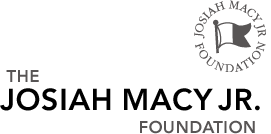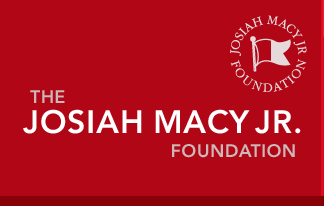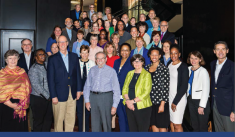Our Grantees
Across the Foundation’s priority areas, our grantees are working to improve the health of the public through innovative research and programs. The Foundation awards up to 40 grants on a rotating schedule each year.
Industry Funding of Medical Education
This task force will assess the role and value of partnerships between academic medicine and industry and then establish a set of principles to assure that those partnerships remain principled and trustworthy. Dr. Roy Vagelos serves as chairman of the task force, with Dr. William Danforth as vice chairman.
Like the upcoming Macy Conference on Continuing Medical Education, the impetus for this task force stems from growing concerns over the dependency of academic medicine on industry support for core educational activities and how this industrial support affects medical education. To support the need for this task force, Dr. Korn, senior vice president for biomedical and health sciences research at the Association of American Medical Colleges (AAMC) notes that gifts and other interchanges between industry and academic medicine reinforce public skepticism about the missions of both academic medicine and the health care industry.
The task force is being asked to develop consensus principles to guide AAMC as well as medical school and teaching hospital leaders as they implement policies to govern industry gifting practices and other forms of support to both maximize their benefits and minimize the pitfalls.
The 35-member group has members from the council of deans, the Council of Teaching Hospitals and Health Systems, the Council of Academic Societies. The Organization of Student Representatives, the Organization of Resident Representatives, academic medical center vice presidents, individuals with expertise in ethics/sociology, public members, industry leaders and AMA liaison members.
The group is meeting twice in Washington and conducting most of its work electronically. Tasks include:
- A review of current policies and procedures used by medical schools and teaching hospitals to manage industry support of educational activities and gifting aimed at students, faculty and staff;
- An evaluation of the benefits to be gained and the pitfalls to be avoided in industry and academic medicine relationships;
- Developing general principles to guide academic medical institutions to optimize the benefits and minimize those pitfalls;
- Identifying current strategies to raise awareness about these benefits and pitfalls and assessing whether any of these strategies have been successful; and
- Suggesting work AAMC might undertake to help members apply the principles developed by the task force.




 11.13.18
11.13.18